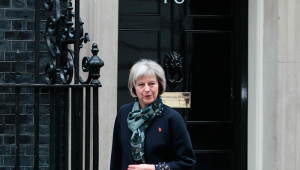Yesterday’s Budget was an obvious attempt at appealing to the younger half of the population.
With repeated references to the ‘next generation’, in terms of the environment, housing and the need for fiscal restraint – and none to pensioners or social care – Philip Hammond made it clear that the government aims to rebalance prosperity in favour of those at the early stages of their careers, or yet to enter the labour market.
For public services, the expectations raised from such promises will perhaps be felt most strongly by the education sector, as the oft-cited engine for giving “everyone the opportunity to shine.”
Here, the chancellor decided to focus on the skills needed to make the country competitive as the fourth industrial revolution continues.
Announcements included a £600 Maths Premium for every additional A-level maths student, efforts to triple the number of computer science teachers and a £30m investment in digital skills distance learning courses.
An enhanced focus on further education is welcome, as it is a prerequisite for two of the government’s key agendas: ensuring the UK’s place as a key player in competitive emerging technology markets and providing chances for young people to go on to have successful careers regardless of their backgrounds.
Sixteen to 19 year-olds in the UK have some of the worst numeracy skills among the OECD countries, even among those with higher levels of qualifications.
Not only is this obstructive to individual success, with significant returns to STEM-subject A-levels and general maths skills, it restricts economic growth.
The urgent need for enhanced digital skills are apparent too, as the current gap is costing an estimated £63bn a year, and predictions that within two decades, 90% of jobs will require digital skills.
Whether today’s Budget announcements are going to go much of the way to overcome these challenges for the next generation is hard to tell.
The Maths Premium has initially been allocated a potential £80m, enough to incentivise sixth form schools and colleges, who have seen the most significant education funding cuts since 2010.
Yet, it takes a certain level of prior attainment to sensibly enrol a student onto an A-level in maths, and the ambitious allocation (which would only be spent if the number of maths students more than doubles) may depend on the level of success of another of the government’s budget announcements - the £40m to train maths teachers.
How to retain these teachers is something the government should consider in the meantime, as about 10% of maths teachers are currently considering leaving the profession.
The government is right to focus on the further education sector as part of their push to help young people overcome the range of challenges they are, and will be, facing.
It will take more than these funding commitments to do so, however.
May and her Cabinet must follow up with well-conceived strategies to ensure that skilled teachers and the right incentives and structures are in place to deserve commendation for their next generation efforts.





















